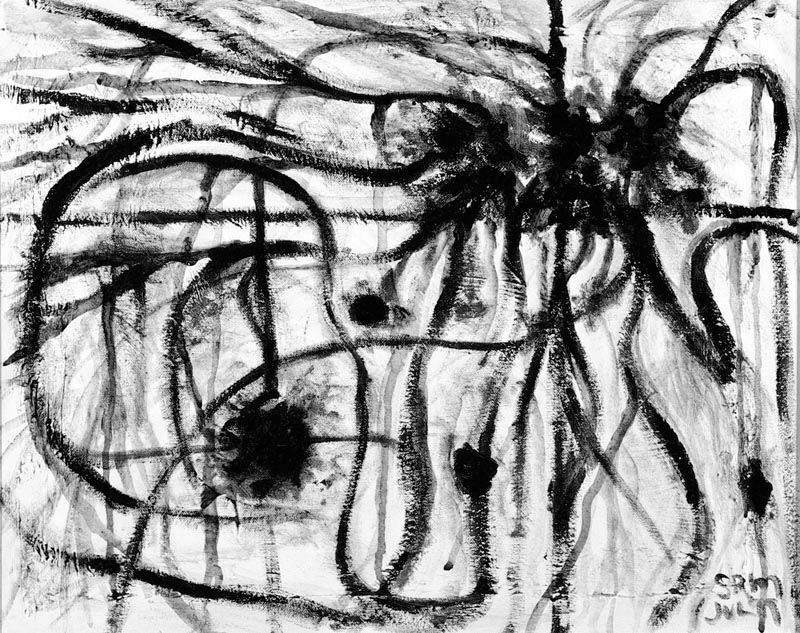("Love of the Trinity" by Lynne Hartman. Source)
Nathaniel's translation of the second phrase:
..and by the merit of that same faith, God Himself, by protecting humans, restores them to heavenly things.
Quod devota fides excellentiam divinae charitatis complectatur, et per hanc Deus in trinitate unus agnoscatur; quodque eiusdem fidei merito ipse Deus homines protegendo ad coelestia reducat
Commentary:
This is another chapter heading introducing us into part four of the first vision. I had a hard time capturing the essence of the second phrase, but since this is only an introduction the elements are more important than the relationship between them which will be developed by St. Hildegard in what follows.
Charity is the unitive power of the Trinity. Here, we could almost say that the Trinity is One because of Divine Love. The Simplicity of the Triune God is not intellectual - it is due to intense love. Reason does not surmount difference and division - love does. Charity is so strong, in fact, that the three most uniquely different persons are united by Her in their very being. Love, in the Trinity, does not just unite separate beings - it is their being, one in being, without being the same or destroying the uniqueness of each one.
What makes us unique is not the most important aspect of our being. Love is what is most important, and love unites us to one another beyond our differences, beyond what makes us unique, without suppressing uniqueness. For the Trinity, it is more important for the heart to grasp that they are One, than for the mind to grapple with how there are three.
A faith that embraces Trinitarian Love is protected by God Himself, and this faith is one that Divinizes the believer.

(I apologize for not answering your email query on this... here's my answer:)
ReplyDeleteThe final phrase would best be construed: "and by the merit of that same faith, God Himself, by protecting humans, restores them to heavenly things."
And congratulations on your ordination!